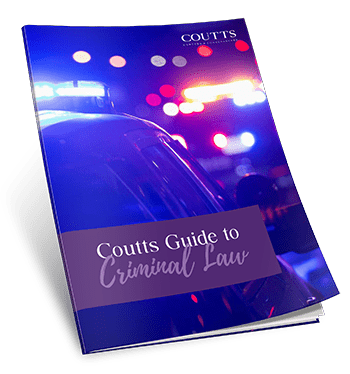We’ve Got You Covered

Luisa Gaetani
Partner
Book Your Fraud Consultation Now
What is fraud?
Fraud offences are contained in Part 4AA of the Crimes Act 1900. There are several offences in this Part covering the offence of fraud, however, the charge of fraud is generally known as obtaining a benefit by deception or causing a disadvantage by deception.
The offence of fraud generally consists of a person dishonestly by any deception either obtaining property belonging to another; obtaining any financial advantage; or causing any financial disadvantage.
Section 4B of the Crimes Act defines dishonesty as “dishonest according to the standards of ordinary people and known by the defendant to be dishonest according to the standards of ordinary people”. Deception can include words or conduct; however, it must be reckless or intentional.
What if I am accused of fraud?
To be convicted of a fraud offence, the police must prove beyond a reasonable doubt, that a person by deception, dishonestly, obtained property belonging to another person, or obtained a financial advantage.
The offence of fraud carries a maximum penalty of two years imprisonment in the local court and a maximum penalty of ten years imprisonment in the district court, depending on the seriousness of the offence.
What to Expect with Coutts Lawyers
Step 1: Initial Contact
Reach out to Coutts Lawyers via our website, phone, or in person. Briefly describe your matter.
Step 2: Consultation Appointment
Schedule and attend a meeting with a Coutts lawyer to discuss the specifics of your matter and desired outcomes.
Step 3: Information & Legal Advice
Share all related documents and information. Your lawyer will review everything, clarify aspects as needed, and then advise on the best action course.
Step 4: Action Plan Development
Based on the advice, an appropriate action plan will be formulated. This may involve communication, documentation processes, or further legal steps.
Step 5: Implementation
Execute the action plan, addressing a range of legal scenarios as necessary.
Step 6: Resolution & Closure
Navigate towards a resolution, with the path determined by the nature of the matter. Your Lawyer will outline any final actions or considerations.
Book Your Fraud Consultation Now
Introducing Luisa
Your Compassionate Lawyer
Meet Luisa, a Partner at Coutts Lawyers & Conveyancers, and an Accredited Family Law specialist. Luisa is the head of our esteemed Family Law & Criminal Team. Boasting over a decade of expertise, Luisa blends sensitivity with practicality, forging deep connections and trust with her clients. Her reputation as a foremost authority in Criminal and Family law is well-deserved.


Connect with Luisa Today
Multi Award-Winning
Law Firm

Fraud Offences FAQ’s
Dishonesty, as defined under Section 4B of the Crimes Act, means behaving dishonestly according to the standards of ordinary people and knowing the conduct to be dishonest by those standards. It must be proven that the defendant’s actions were known to be dishonest according to the standards of ordinary people.
To secure a conviction for a fraud offence, the police must prove beyond a reasonable doubt that the person, by deception and dishonestly, obtained property belonging to another person, or obtained a financial advantage or caused a financial disadvantage.
The offence of fraud can lead to severe penalties. It carries a maximum penalty of two years imprisonment in the local court and up to ten years imprisonment in the district court, contingent upon the severity and specifics of the offence.
If accused of fraud, it is crucial to consult with a qualified legal professional to understand the options and defences available. Legal counsel can assist in formulating a defence strategy, provide representation in court, and guide on the legal intricacies related to fraud offences. Defending against accusations of fraud involves examining the evidence, questioning the reliability and legality of the evidence presented, and potentially presenting counterevidence to disprove the allegations.
Coutts Lawyers & Conveyancers can offer expert legal advice and assistance to those facing fraud claims. Their Criminal Law team has the knowledge and expertise to navigate through the legal processes related to fraud offences, provide representation in court, and advise on the available options. Seeking independent legal advice from experienced professionals like Coutts is essential before attending court to ensure a proper understanding of the legal position and to make well-informed decisions.
Download your FREE Criminal Law Guide!



